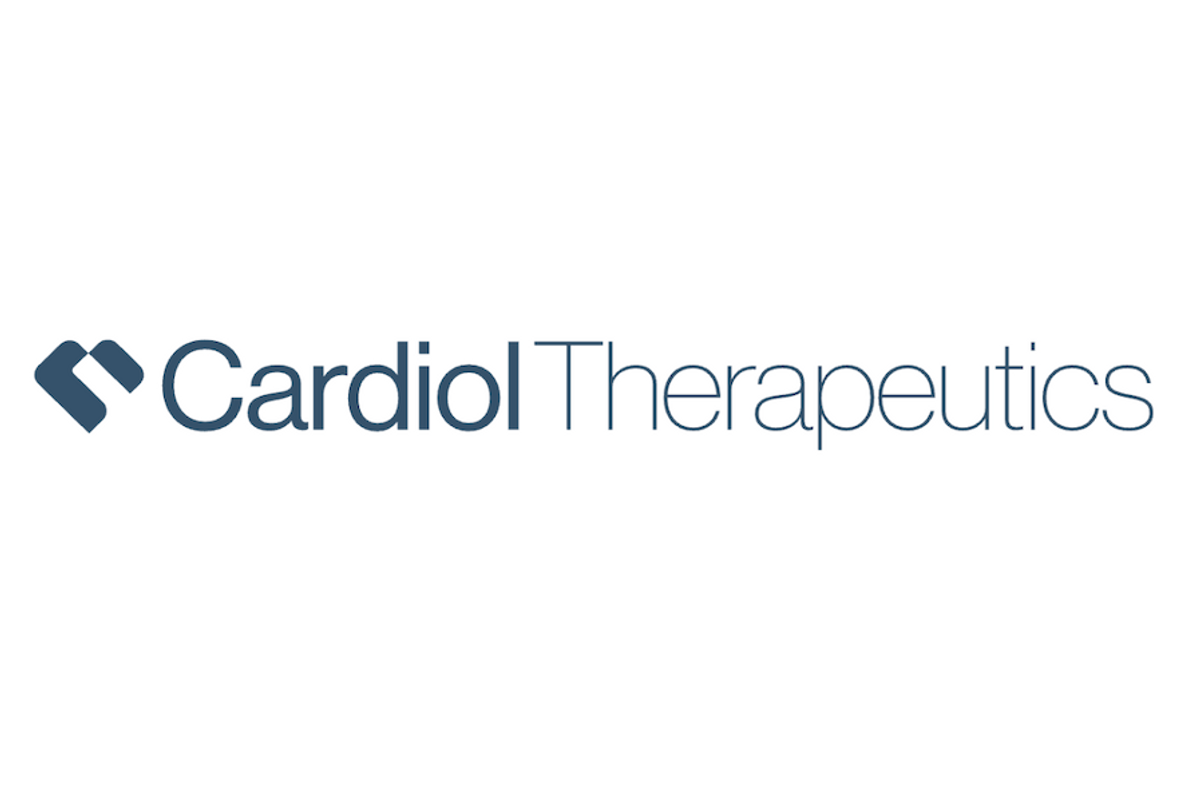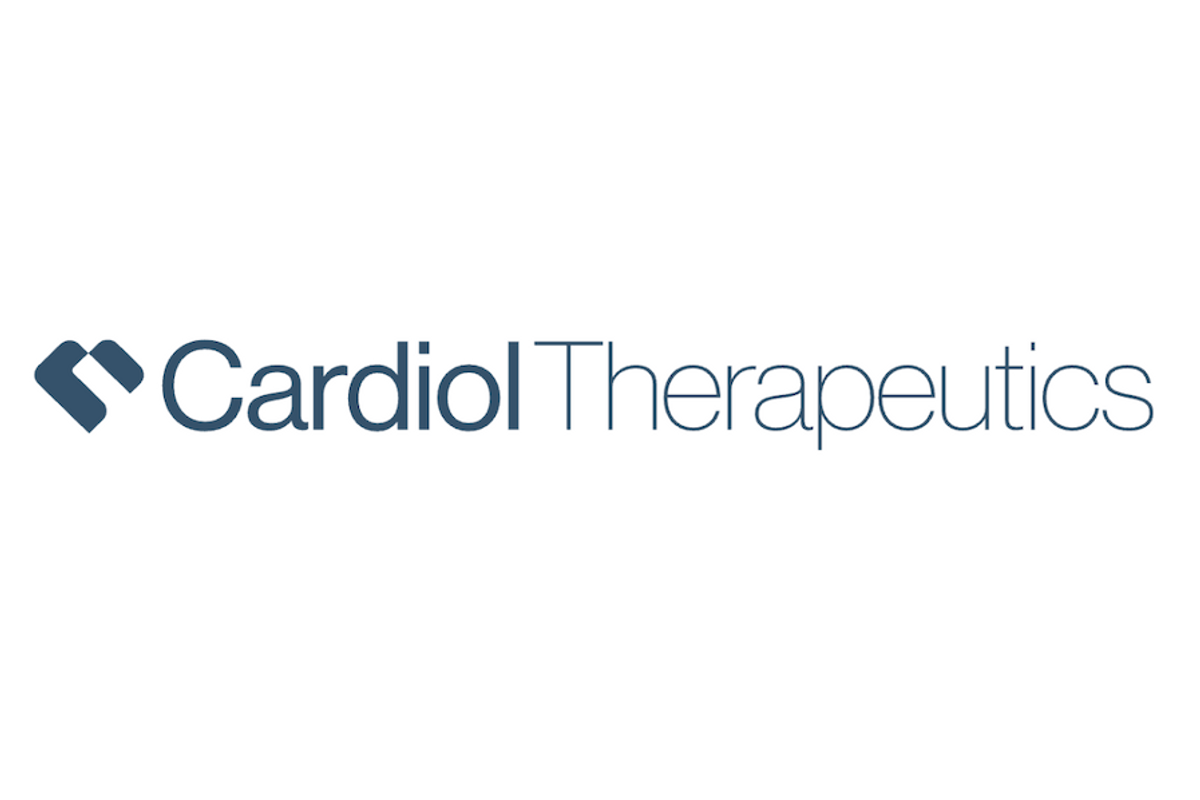
Administration of CardiolRx™ led to a marked reduction in the primary efficacy endpoint of pericarditis pain
CardiolRx™ also shown to reduce inflammation in patients with elevated CRP
89% of patients have continued into the extension phase of the study
Cardiol Therapeutics Inc. (NASDAQ: CRDL) (TSX: CRDL) ("Cardiol" or the "Company"), a clinical-stage life sciences company focused on the research and clinical development of anti-inflammatory and anti-fibrotic therapies for the treatment of heart disease, today reported 8-week clinical data from its Phase II open-label MAvERIC-Pilot study investigating the impact of CardiolRx™ administered to patients with symptomatic recurrent pericarditis. The data showed a substantial reduction in the primary efficacy endpoint of patient-reported pericarditis pain at the end of the 8-week treatment period ("TP"), as well as normalization of inflammation - as measured by C-reactive protein ("CRP" in 80% of patients with elevated CRP at baseline.
"We are delighted to share the primary endpoint data from the MAvERIC-Pilot study, demonstrating that oral administration of our small molecule CardiolRx™ led to marked reductions in pericarditis pain and inflammation, which were remarkably comparable in magnitude to the changes reported following immunosuppressive biologic therapy commonly used in third-line treatment of recurrent pericarditis," said David Elsley, Cardiol Therapeutics' President and Chief Executive Officer. "Based on the clinically meaningful impact of CardiolRx™ on the key symptom of this debilitating disease, we now anticipate that the totality of the MAvERIC-Pilot data will support advancing to a Phase III trial of CardiolRx™ designed to meet our objective of providing a more accessible and non-immunosuppressive therapy option for thousands of pericarditis patients."
MAvERIC-Pilot enrolled 27 patients diagnosed with symptomatic recurrent pericarditis. Each patient had a high disease burden as reflected in the mean baseline pericarditis pain score of 5.8 out of 10, and by the number of previous episodes of pericarditis: 9 patients (33%) with 2 previous episodes; 9 (33%) with 3; 4 (15%) with 4; and 5 (19%) with >4.
Summary of topline findings include:
- Primary endpoint of patient-reported pericardial pain on an 11-point numerical rating scale ("NRS") showed a mean reduction of 3.7, from 5.8 at baseline (range of 4 to 10) to 2.1 (range of 0 to 6) at 8 weeks. NRS is a validated instrument used to assess patient-reported pericarditis pain. Zero represents 'no pain at all', whereas the upper limit of 10 represents 'the worst pain ever possible'.
- Eight of the ten patients (80%) with a baseline CRP ≥1mg/dL had a normalization of CRP (≤0.5 mg/dL) at 8 weeks. The mean CRP decreased from 5.7 mg/dL at baseline to 0.3 mg/dL at 8 weeks. CRP is a commonly used clinical marker of inflammation, and in combination with the NRS score, is used by clinicians to assess clinical response and determine a recurrence.
- Eighty-nine percent of patients (24/27) have progressed from the TP into the extension period ("EP") of the study, defined as the additional 18-week period of CardiolRx™ treatment that follows the TP.
- CardiolRx™ was shown to be safe and generally well-tolerated.
MAvERIC-Pilot Study Design
The ongoing MAvERIC-Pilot study is evaluating CardiolRx™ in 27 adult participants (≥18 years) with symptomatic recurrent pericarditis (≥2 recurrences), with or without a raised CRP, at eight clinical sites across the United States. The study Chairman is Allan L. Klein, MD, Director of the Center of Pericardial Diseases and Professor of Medicine, Heart and Vascular Institute, at the Cleveland Clinic. The study design consists of an 8-week TP followed by an 18-week EP. Patients with pericarditis chest pain with an NRS pain score ≥4 together with either an elevated CRP (≥1mg/dL) or evidence of pericardial inflammation assessed by cardiac imaging have been enrolled. CardiolRx™ is added to stable doses of baseline therapy for recurrent pericarditis (non-steroidal anti-inflammatory drugs, colchicine, or corticosteroids, in any combination). In the first 10 days of the TP, CardiolRx™ is up-titrated to 10 mg/kg twice daily, or the maximum tolerated dose. Throughout the TP, patients continue receiving baseline therapy for recurrent pericarditis but are weaned off this during the EP to assess pericarditis recurrence. The primary efficacy endpoint is the change, from baseline to 8 weeks, in patient-reported pericarditis pain using the NRS. Secondary endpoints include NRS pain score at 26 weeks, and freedom from pericarditis recurrence during the EP. Secondary CRP endpoints of interest include change from baseline to 26 weeks, and for patients with CRP ≥1 mg/dL at baseline, the time to CRP normalization, as well as the percentage of patients with normalized CRP at both 8 and 26 weeks.
Recurrent Pericarditis
Recurrent pericarditis refers to inflammation of the pericardium (the membrane or sac that surrounds the heart) that follows an initial episode (frequently resulting from a viral infection). Patients may have multiple recurrences. Symptoms include debilitating chest pain, shortness of breath, and fatigue, resulting in physical limitations, reduced quality of life, emergency department visits, and hospitalizations. Significant accumulation of pericardial fluid and scarring can progress to life-threatening constriction of the heart. The only FDA-approved therapy for recurrent pericarditis, launched in 2021, is costly and is primarily used as a third-line intervention. On an annual basis, the number of patients in the United States having experienced at least one recurrence is estimated at 38,000. Approximately 60% of patients with multiple recurrences (>1) still suffer for longer than two years, and one third are still impacted at five years. Hospitalization due to recurrent pericarditis is often associated with a 6-8-day length of stay and cost per stay is estimated to range between $20,000 and $30,000 in the United States.
About Cardiol Therapeutics
Cardiol Therapeutics Inc. (NASDAQ: CRDL) (TSX: CRDL) is a clinical-stage life sciences company focused on the research and clinical development of anti-inflammatory and anti-fibrotic therapies for the treatment of heart disease. The Company's lead small molecule drug candidate, CardiolRx™ (cannabidiol) oral solution, is pharmaceutically manufactured and in clinical development for use in the treatment of heart disease. It is recognized that cannabidiol inhibits activation of the inflammasome pathway, an intracellular process known to play an important role in the development and progression of inflammation and fibrosis associated with myocarditis, pericarditis, and heart failure.
Cardiol has received Investigational New Drug Application authorization from the United States Food and Drug Administration ("US FDA") to conduct clinical studies to evaluate the efficacy and safety of CardiolRx™ in two diseases affecting the heart: (i) a Phase II multi-center open-label pilot study in recurrent pericarditis (the MAvERIC-Pilot study; NCT05494788), an inflammatory disease of the pericardium which is associated with symptoms including debilitating chest pain, shortness of breath, and fatigue, and results in physical limitations, reduced quality of life, emergency department visits, and hospitalizations; and (ii) a Phase II multi-national, randomized, double-blind, placebo-controlled trial (the ARCHER trial; NCT05180240) in acute myocarditis, an important cause of acute and fulminant heart failure in young adults and a leading cause of sudden cardiac death in people less than 35 years of age. The US FDA has granted Orphan Drug Designation to CardiolRx™ for the treatment of pericarditis, which includes recurrent pericarditis.
Cardiol is also developing CRD-38, a novel subcutaneously administered drug formulation intended for use in heart failure - a leading cause of death and hospitalization in the developed world, with associated healthcare costs in the United States exceeding $30 billion annually.
For more information about Cardiol Therapeutics, please visit cardiolrx.com.
Cautionary statement regarding forward-looking information:
This news release contains "forward-looking information" within the meaning of applicable securities laws. All statements, other than statements of historical fact, that address activities, events, or developments that Cardiol believes, expects, or anticipates will, may, could, or might occur in the future are "forward-looking information". Forward-looking information contained herein may include, but is not limited to, statements relating to the Company's focus on developing anti-inflammatory and anti-fibrotic therapies for the treatment of heart disease, the molecular targets and mechanism of action of the Company's product candidates, the Company's intended clinical studies and trial activities and timelines associated with such activities, including for primary efficacy endpoint and secondary endpoints, the Company's plan to advance the development of CRD-38, a novel subcutaneous formulation of cannabidiol intended for use in heart failure, and the Company's anticipation that the totality of the MAvERIC-Pilot data will support advancing to a Phase III trial of CardiolRx™. Forward-looking information contained herein reflects the current expectations or beliefs of Cardiol based on information currently available to it and is based on certain assumptions and is also subject to a variety of known and unknown risks and uncertainties and other factors that could cause the actual events or results to differ materially from any future results, performance or achievements expressed or implied by the forward-looking information, and are not (and should not be considered to be) guarantees of future performance. These risks and uncertainties and other factors include the risks and uncertainties referred to in the Company's Annual Report on Form 20-F filed with the U.S. Securities and Exchange Commission and Canadian securities regulators on April 1, 2024, as well as the risks and uncertainties associated with product commercialization and clinical studies. In addition, a decision to proceed with a Phase III trial is subject to full Phase II MAvERIC-Pilot study outcomes and regulatory authorization. Data from the Study is not necessarily indicative of results from future Phase III studies which may be conducted. These assumptions, risks, uncertainties, and other factors should be considered carefully, and investors should not place undue reliance on the forward-looking information, and such information may not be appropriate for other purposes. Any forward-looking information speaks only as of the date of this press release and, except as may be required by applicable securities laws, Cardiol disclaims any intent or obligation to update or revise such forward-looking information, whether as a result of new information, future events, or results, or otherwise.
For further information, please contact:
Trevor Burns, Investor Relations +1-289-910-0855
trevor.burns@cardiolrx.com

To view the source version of this press release, please visit https://www.newsfilecorp.com/release/212811





